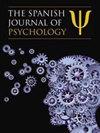心理科学如何帮助对抗假新闻的传播?
IF 2.9
4区 心理学
Q1 PSYCHOLOGY
引用次数: 30
摘要
近年来,人们对假新闻心理的兴趣迅速增加。我们概述了心理科学领域的各种干预措施,旨在打击假新闻和错误信息在网上的传播,主要侧重于纠正(揭穿)和先发制人(预掩体)的方法。我们还提供了一个心理科学领域的开放性问题的研究议程,这些问题与假新闻传播的方式和原因以及如何最好地应对它有关:干预有效性的寿命;来源的作用和来源的可信度;假新闻的分享是由动机认知还是注意力不集中来解释的;以及开发心理测量学验证工具来衡量干预措施如何影响个人对假新闻的易感性的复杂性。本文章由计算机程序翻译,如有差异,请以英文原文为准。
How Can Psychological Science Help Counter the Spread of Fake News?
Abstract In recent years, interest in the psychology of fake news has rapidly increased. We outline the various interventions within psychological science aimed at countering the spread of fake news and misinformation online, focusing primarily on corrective (debunking) and pre-emptive (prebunking) approaches. We also offer a research agenda of open questions within the field of psychological science that relate to how and why fake news spreads and how best to counter it: the longevity of intervention effectiveness; the role of sources and source credibility; whether the sharing of fake news is best explained by the motivated cognition or the inattention accounts; and the complexities of developing psychometrically validated instruments to measure how interventions affect susceptibility to fake news at the individual level.
求助全文
通过发布文献求助,成功后即可免费获取论文全文。
去求助
来源期刊

Spanish Journal of Psychology
Arts and Humanities-Language and Linguistics
CiteScore
3.60
自引率
0.00%
发文量
44
期刊介绍:
The Spanish Journal of Psychology is published with the aim of promoting the international dissemination of relevant empirical research and theoretical and methodological proposals in the various areas of specialization within psychology.
The first Spanish journal with an international scope published entirely in English.
 求助内容:
求助内容: 应助结果提醒方式:
应助结果提醒方式:


